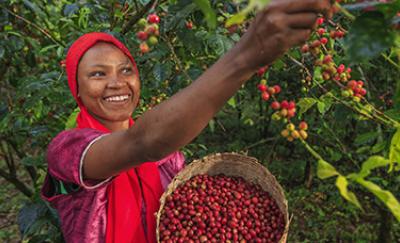How Aid is Changing—and Global Orgs Should Adapt



Development is changing. USAID’s forthcoming local capacity strengthening policy reflects an evolution in the way we think about foreign assistance—and that involves more than just increased funding to local organizations.
In an opinion for Devex, I share my perspectives from 20 years at USAID on what localization means for organizations like Abt, how we should adapt (and already are), and where opportunities in development are headed.
Read on Devex: Yes, global orgs have a future in USAID’s localization agenda (requires subscription)
Beyond just good project design and management, localizing aid gives individuals, communities, and organizations the autonomy to design and implement solutions that work for them, within local systems and processes.
Long a stated priority of donors around the world, the movement gained momentum from two major catalysts in 2020: The COVID-19 pandemic, which halted most international travel and shifted more project management to in-country teams, as well as the movement to “decolonize aid,” spurred by racial uprisings in the U.S. and worldwide. Practical change, though, remains limited by complex donor requirements, including safeguards to prevent fraud, as well as the structures and inherent biases of the development industry.
Rhetoric is also a barrier to progress. We tend to talk about localization as either the easy, direct things we can measure or the major structural dynamics within the global aid construct we should undo. That leaves large implementing organizations, like Abt—with critical roles operationalizing and advancing real change—out of the conversation.
In a future where development is locally driven, I believe global perspectives and services will still be valued. The client relationship will fundamentally shift, but core needs will remain. I’ve outlined several opportunities we see for large development implementers in localization efforts. Read more in my Devex article and learn about Abt’s approaches to building local resilience.
Learn more:
Read More
Inclusive Economic Growth

USAID Catalytic Action through Localized Policy Solutions (CATALYST)
USAID CATALYST is a global program that helps countries build policy and institutional frameworks that enable greater investment in sustainability and resilience across sectors.

KOMPAK Strengthened Delivery of Core Services
KOMPAK implemented a local-level development initiative to improve basic services and economic opportunities for poor and vulnerable Indonesians.

Alexandria Recurring Income for Success and Equity (ARISE)
Rising income inequality has left many residents of Alexandria, VA, struggling to make ends meet, including many who are working. To determine how best to support them, the city of Alexandria launched a pilot to provide select residents who earn less…

The Next Phase of Financing for Resilience
In our webinar, explore innovative financial strategies to enhance climate resilience and scale finance for sustainable development in emerging markets.
- Agriculture Market Systems & Food Security
- Governance
- Sub-National Governance & Decentralization
- Health
- Health Policy & Workforce
- Infectious & Vector-Borne Diseases
- Private Sector Health
- Reproductive, Maternal and Child Health
- Workforce Development
- Inclusive Economic Growth
- Governance as Power
- Health Systems Strengthening
- Global Health Security
Region
- Asia & Pacific
- Latin America and the Caribbean
- Middle East
- Africa